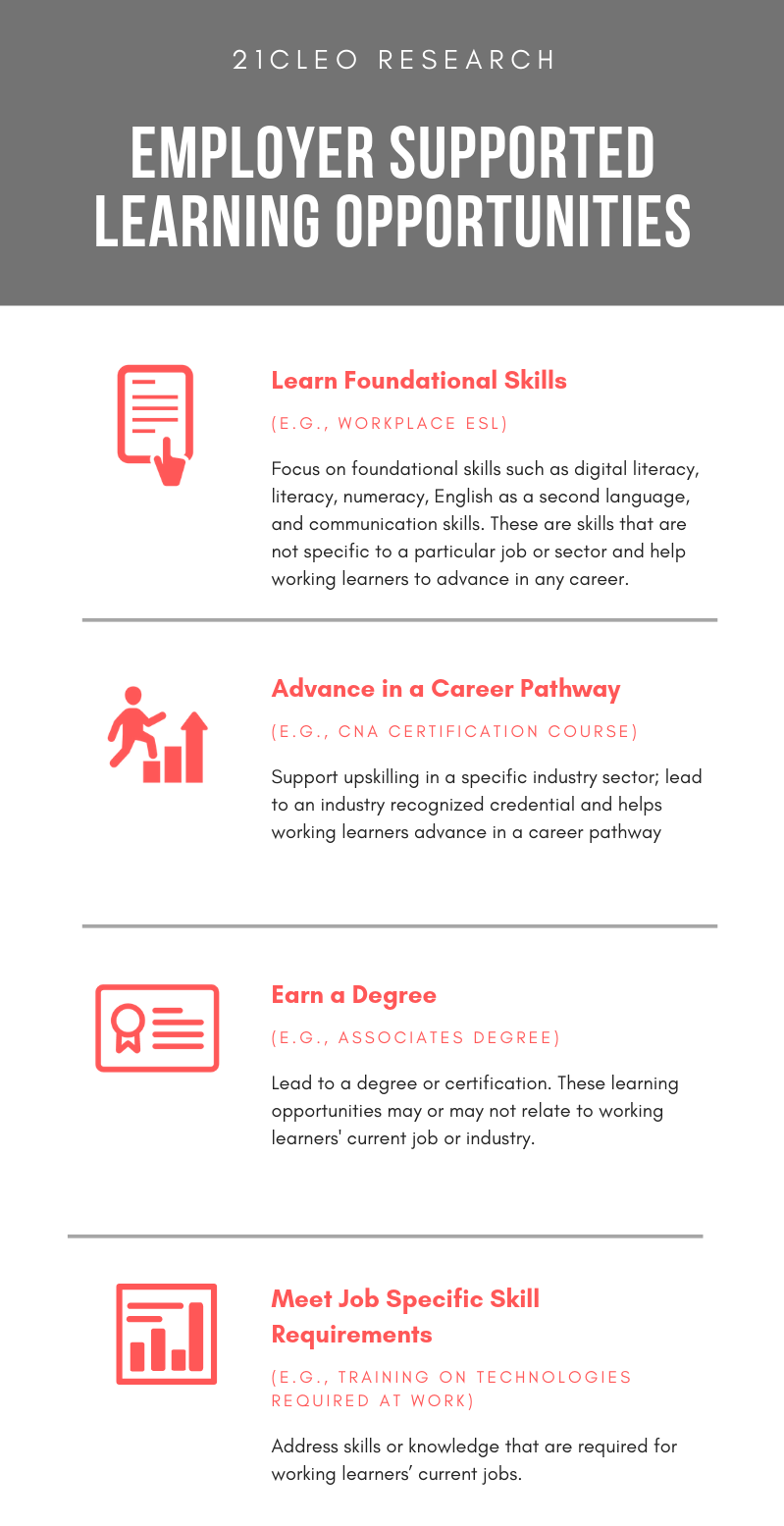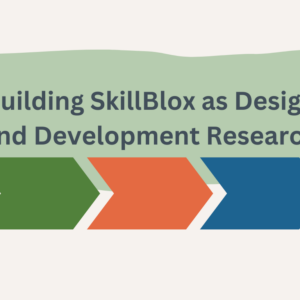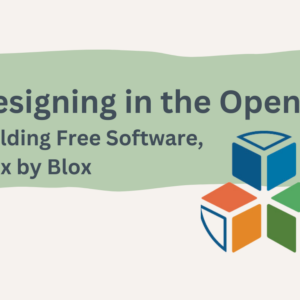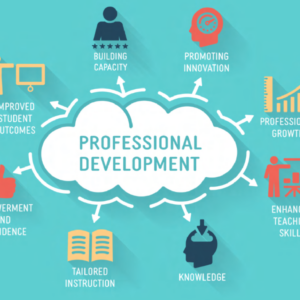By 21CLEO Research Team
The 21st Century Learning Ecosystem Opportunities (21Cleo) research team has been hard at work! In our last two blog posts, we reported on a field review of learning opportunities from a process perspective (how we chose the literature we reviewed) and from a product perspective (what we are learning from this literature). While we’ve been reviewing publications we’ve also done our first round of interviews with working learners in two separate settings. One of the things that we’ve noticed in our reading and in our initial interviews is that “learning opportunities” can not be considered as one monolithic concept – it is a more complex concept than that! For example, our previous blog post describes learning opportunities in terms of formality (i.e., formal or informal), whether a learner works with a cohort or is self-directed, and format or modality of learning (e.g., online or face-to-face).
In addition to these defining nuances, we’ve noticed that we also need to describe learning opportunities in relation to initial goals working learners have for learning and the goals of employers for supporting a learning opportunity. Our initial reading and interview data suggest four categories of learning opportunities either offered at places of employment or supported by employers.

These categories are not mutually exclusive and may overlap. Perhaps more importantly, working learners may shift between them over time as they experience transformative learning opportunities. Thinking in terms of these four categories of learning opportunities provides an initial way to understand the options present in a learning ecosystem, offering nuance and context. These categories are helping us to better understand what kinds of opportunities motivate working learners and how they persist and work through and across and in some cases between learning opportunities. This approach has also helped us conceptualize the permeability between the categories.
A culture of inquiry
In this blog we share our thinking and initial findings so that we can facilitate a culture of inquiry across the many stakeholders interested in employer supported adult learning. We would love to hear from you! Does our thinking resonate with or conflict with your understanding or experience? Did we miss a context or category? We invite you to post a comment below or email us at 21cleo@pdx.edu.




